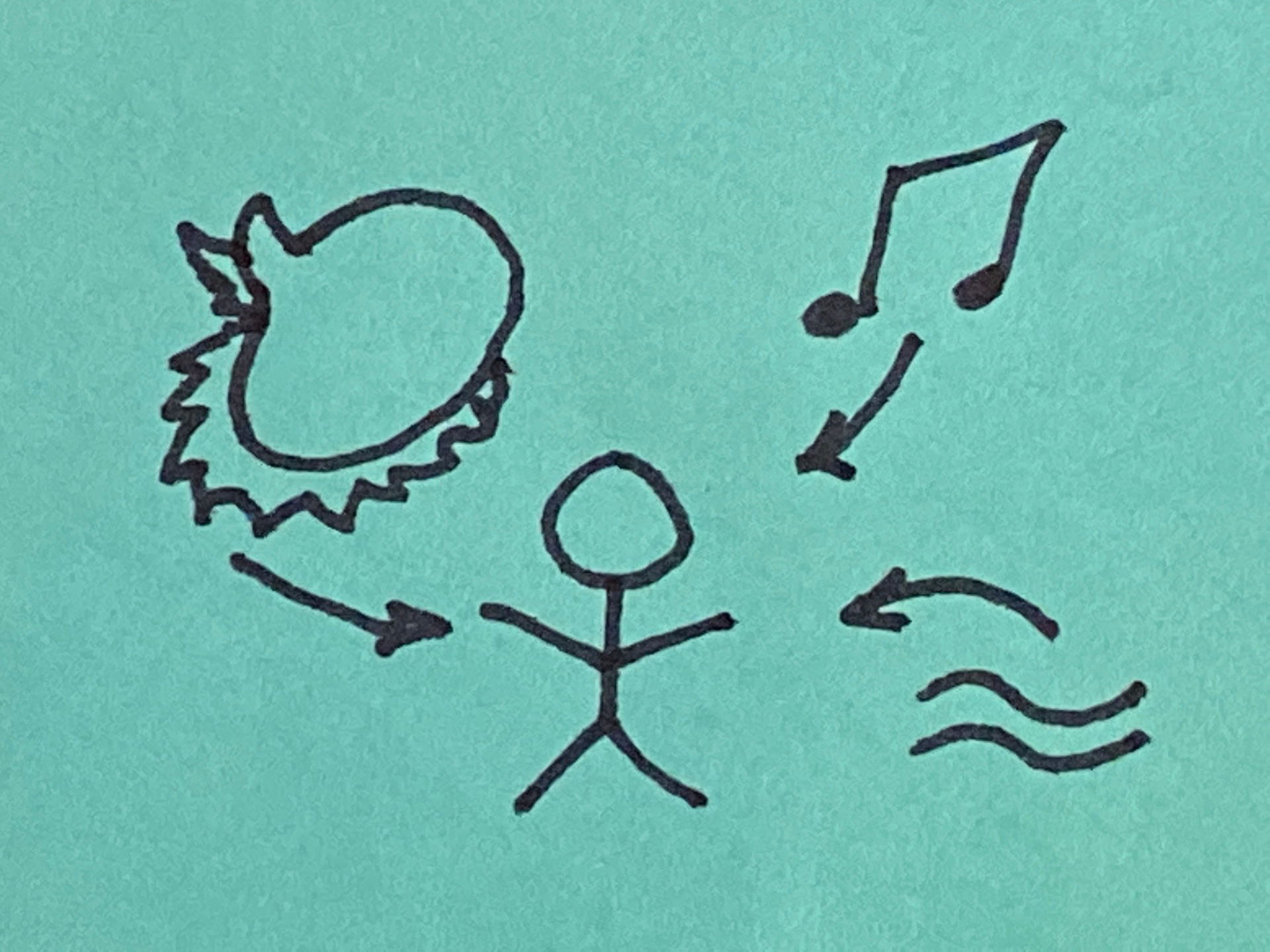Sense of Hearing
Enliven your experience by continually refining your sense of hearing.

like with your eyes and your Sense of Sight, you have two ears to help you locate the source of sounds in space.
With all the information that comes to us through hearing, it’s easy to get overwhelmed. Leonardo da Vinci pointed out that most people listen without hearing, but even when we pay attention, we hear only what we want to hear and miss out on a lot.
-
Your senses are your source of experience. Leonardo DaVinci was well aware of this and tried to refine all his senses. Like with all our senses, we have the ability to filter out sounds that we don’t want or need to hear, but we have to be careful not filter out too much.
-
Hearing is one of the senses that can give you information over distance.
-
Our ability to make and hear sounds is the basis of communication through speaking.
-
Listening is a kind of intentional hearing. We tune into a sound and pay attention to it.
-
Music is an amazing aspect of hearing. It’s tied to our emotions in ways that most other sounds are not, and seem to be able to communicate emotions directly if used properly.
-
Sound is a form of vibration that you can often feel as well.
-
The following ideas for improving your sense of hearing come from How To Think Like Leonard Da Vinci by Michael J. Gelb:
- layered listening
- listen for silence
- study great music
- learn the major movements of Western Music
- develop active listening
Therefore:
Enliven your experience by continually refining your sense of hearing.
If your hearing is impaired, you can get some experience of it through vibration—Sense of Touch; like with your Sense of Smell, you can find sounds that help you focus, relax, or increase your energy; Experiment with different sounds and forms of music to see how they affect you or those you’re trying to help